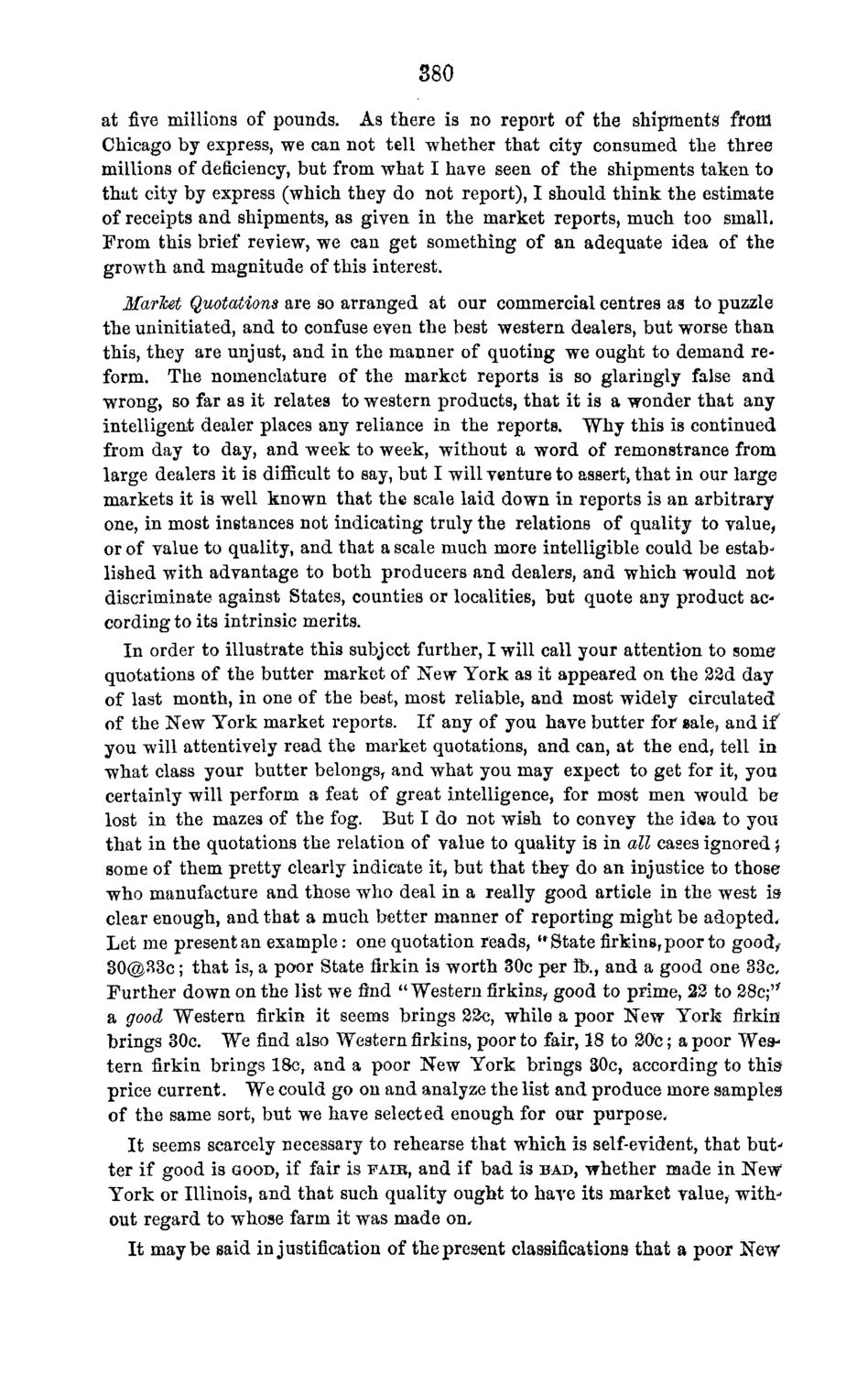| |
| |
Caption: Board of Trustees Minutes - 1870
This is a reduced-resolution page image for fast online browsing.

EXTRACTED TEXT FROM PAGE:
380 at five millions of pounds. As there is no report of the shipments from Chicago by express, we can not tell whether that city consumed the three millions of deficiency, but from what I have seen of the shipments taken to that city by express (which they do not report), I should think the estimate of receipts and shipments, as given in the market reports, much too sinall. From this brief review, we can get something of an adequate idea of the growth and magnitude of this interest. Market Quotations are so arranged at our commercial centres as to puzzle the uninitiated, and to confuse even the best western dealers, but worse than this, they are unjust, and in the manner of quoting we ought to demand reform. The nomenclature of the market reports is so glaringly false and wrong, so far as it relates to western products, that it is a wonder that any intelligent dealer places any reliance in the reports. Why this is continued from day to day, and week to week, without a word of remonstrance from large dealers it is difficult to say, but I will venture to assert, that in our large markets it is well known that the scale laid down in reports is an arbitrary one, in most instances not indicating truly the relations of quality to value, or of value to quality, and that a scale much more intelligible could be established with advantage to both producers and dealers, and which would not discriminate against States, counties or localities, but quote any product according to its intrinsic merits. In order to illustrate this subject further, I will call your attention to some quotations of the butter market of New York as it appeared on the 22d day of last month, in one of the best, most reliable, and most widely circulated of the New York market reports. If any of you have butter for gale, and if you will attentively read the market quotations, and can, at the end, tell in what class your butter belongs, and what you may expect to get for it, you certainly will perform a feat of great intelligence, for most men would be lost in the mazes of the fog. But I do not wish to convey the idea to you that in the quotations the relation of value to quality is in all cases ignored 5 some of them pretty clearly indicate it, but that they do an injustice to those who manufacture and those who deal in a really good article in the west i& clear enough, and that a much better manner of reporting might be adopted. Let me present an example: one quotation reads, *f State firkins, poor to good,30@33c; that is, a poor State firkin is worth 30c per lb., and a good one 33c, Further down on the list we find "Western firkins, good to prime, 22 to 28c;'* a good Western firkin it seems brings 22c, while a poor New York firkin brings 30c. We find also Western firkins, poor to fair, 18 to 20c; a poor Western firkin brings 18c, and a poor New York brings 30c, according to this price current. We could go on and analyze the list and produce more samples of the same sort, but we have selected enough for our purpose. It seems scarcely necessary to rehearse that which is self-evident, that but" ter if good is GOOD, if fair is FAIB, and if bad is BAD, whether made in New* York or Illinois, and that such quality ought to bare its market value, witip out regard to whose farm it was made on, It maybe said in justification of the present classifications that a poor New
| |